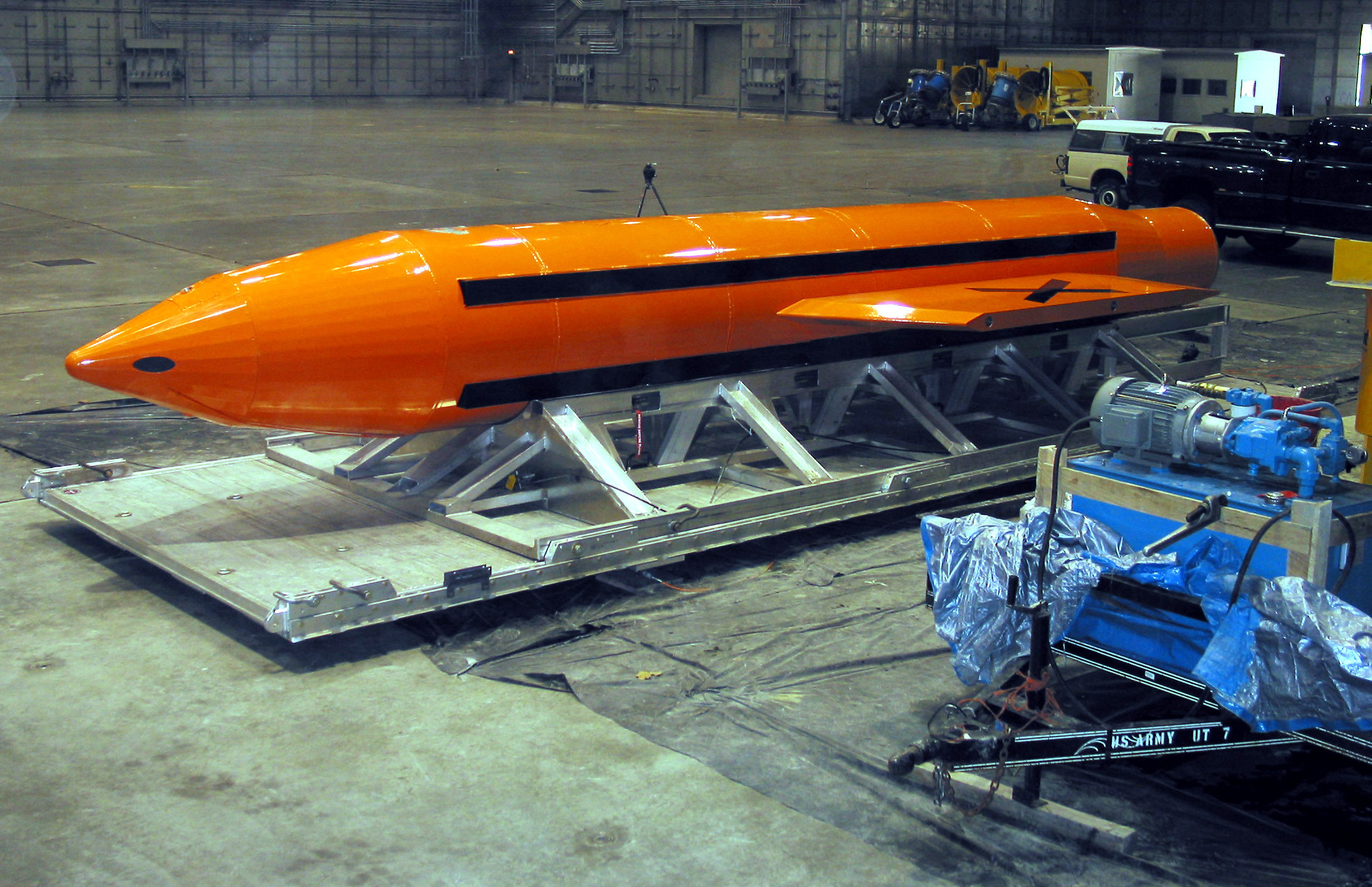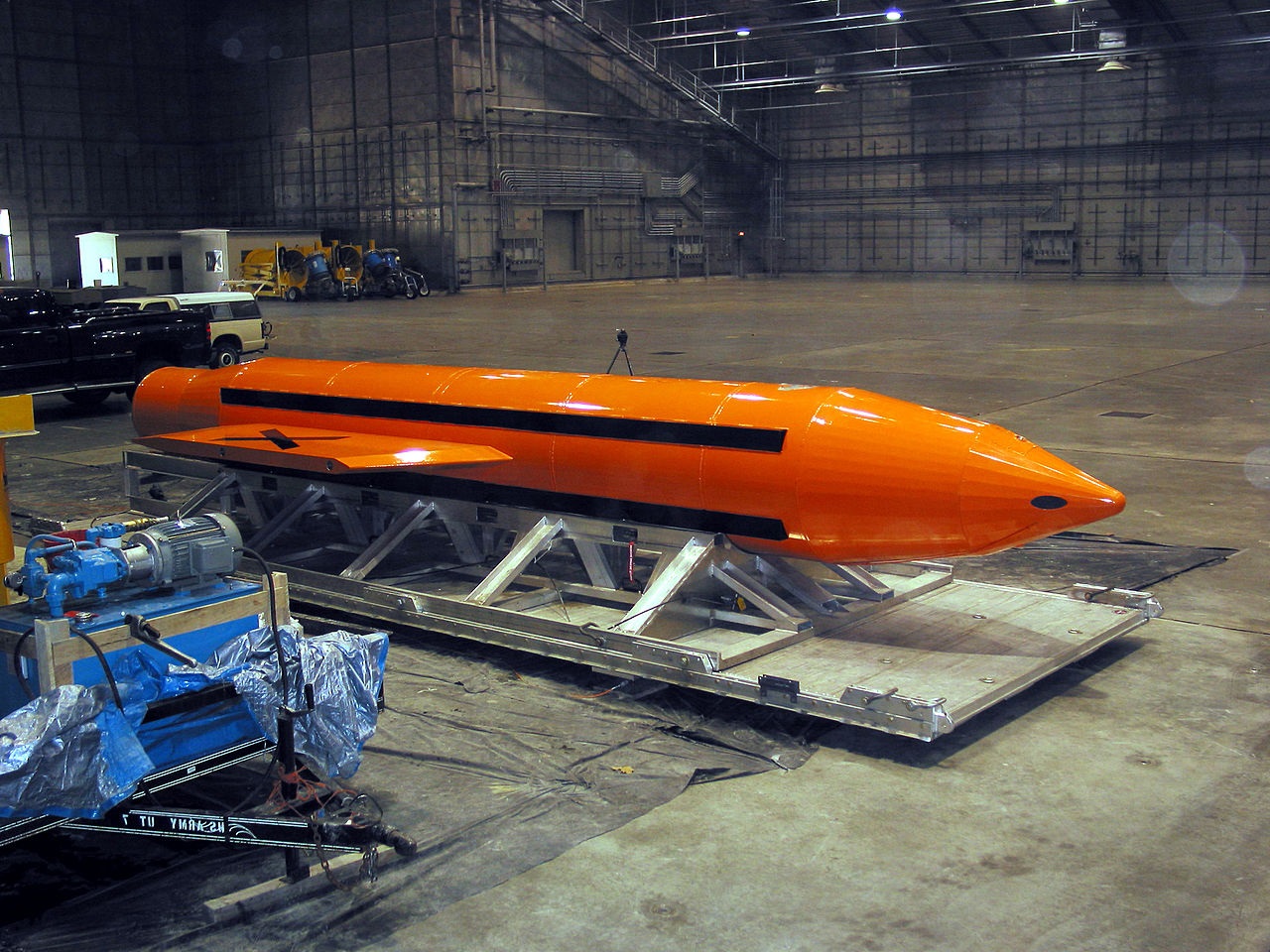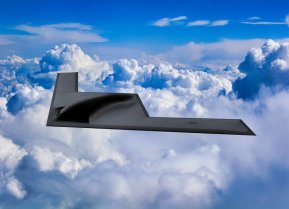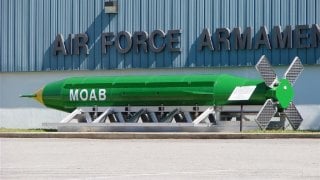MOAB: What is the Mother of All Bombs?
The GBU-43/B MOAB is the largest conventional non-nuclear bomb in the U.S. Air Force’s arsenal. The MOAB weighs 22,600 pounds, with a payload of 18,700 pounds. It has a blast radius of one mile and is equivalent to 11 tons of TNT.
If you love the outdoors, the word “Moab” might bring to mind a beautiful range of arches and canyonlands in the national parks of Utah. But in the U.S. military, MOAB stands for the Mother of All Bombs, and these are a doozy. Officially these devices are called the Massive Ordnance Air Blast bombs.
Picture a tractor-trailer, and realize this bomb would occupy nearly the entire flatbed, as it is 30 feet long with a diameter of 3.4 feet.
No Hiding From the MOAB
The GBU-43/B MOAB is the largest conventional non-nuclear bomb in the U.S. Air Force’s arsenal.
It was used to strike an ISIS position in Afghanistan on April 13, 2017. On that occasion, a MOAB was dropped from an MC-130J airplane belonging to the Air Force Special Operations Command. It was pushed out of the rear of the aircraft and floated down with the aid of a parachute.
The strike marked the first time the GPS-guided bomb was used in battle. This thing weighs 22,600 pounds, with a payload of 18,700 pounds. It has a blast radius of one mile and is equivalent to 11 tons of TNT.
Then-President Donald Trump thought the MOAB would help execute his strategy of bombing ISIS into the Stone Age. He called the MOAB strike “another very successful job.” The mission in April 2017 was to destroy an ISIS bunker and cave complex in the Achin district of the Nangarhar province, a barren area in Afghanistan’s east that borders Pakistan.
A team from the U.S. Army Special Forces found the caves and tunnels and called for more firepower. Access to the tunnels was fronted by mines, and the Green Berets could not advance. They needed an assist, but they probably did not think they would see the MOAB in action. Thirty-six to 90 ISIS militants were reportedly killed by the MOAB. The fighters were believed to be dug in around 300 to 900 feet deep. The location was a command center and a weapons and ammunition cache, which made the blast even bigger.
The MOAB has an air blast feature by which it explodes over the target and spreads its payload over a broad area to demolish targets throughout the blast zone. It is not a penetrator. The original idea behind the MOAB in 2003 was to use the massive explosion it creates to scare an adversary into surrendering.
Russia Has Tried to Create an Even Bigger Bomb
Not to be outdone, the Russians have something called the “Father of All Bombs” that they tested in 2007. The Russian military claims the Father of All Bombs is four times as powerful as the American-made mammoth – the device uses a deadly thermobaric or vacuum blast with the energy of 44 tons of TNT.
In 2003, the Pentagon conducted a study to see if the MOAB was in compliance with the Law of Armed Conflict. The Department of Defense determined that “although the MOAB weapon leaves a large footprint, it is discriminate and requires a deliberate launching toward the target. It's expected that the weapon will have a substantial psychological effect on those who witness its use.”

Indeed, this psychological aspect is probably the bomb’s most pronounced feature. The MOAB is intended to attract media coverage and show the enemy that the United States can draw on a devastating spectrum of conventional arms to defeat its foes.

It is difficult to know whether and in what circumstance the MOAB will be used again. It must be deployed by cargo plane –- no other warplane in the U.S. fleet is configured to drop it. That means it would need to be dropped in non-contested airspace. The MOAB could also kill or wound civilians despite its GPS guidance, and this limits the ways the U.S. military could use it. The device is a reminder of America’s sheer military might. Mega-weapons like the MOAB intend to create widespread panic.
About the Author: Dr. Brent M. Eastwood
Dr. Brent M. Eastwood is the author of Humans, Machines, and Data: Future Trends in Warfare. He is an Emerging Threats expert and former U.S. Army Infantry officer. You can follow him on Twitter @BMEastwood. He holds a Ph.D. in Political Science and Foreign Policy/ International Relations.
All images are Creative Commons.


